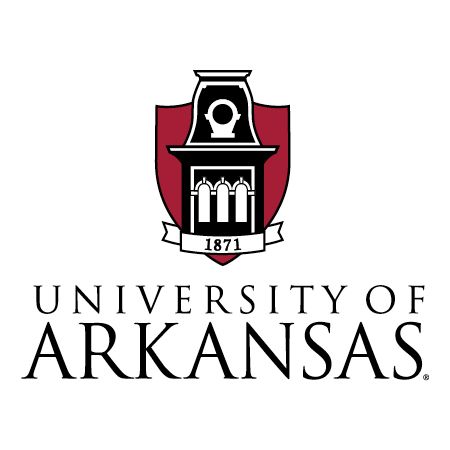FAYETTEVILLE, Ark. – A record nine University of Arkansas faculty members received the National Science Foundation’s most prestigious award in support of early-career research, during the university’s 2018 fiscal year.
Seven faculty members in the College of Engineering and two in the J. William Fulbright College of Arts and Sciences received the Faculty Early Career Development Awards, known as “CAREER Awards” between July 1, 2017 and June 30, 2018.
Eight of the U of A’s awards were awarded during NSF’s 2018 fiscal year, October 1 – September 30, and one was recorded by NSF as a part of its previous fiscal year.
Recipients are selected based on their potential to serve as academic role models in research and education and to lead advances in the mission of their department or organization.
The awards are approximately $500,000 to $870,000 each, distributed over five years. Funding is divided between research expenses and activities that advance science education.
The winners include:
College of Engineering
Michelle Bernhardt-Barry, assistant professor of civil engineering, for her research to expand and improve the use of soil as a building material through fundamental transdisciplinary research and the application of innovative technologies. Her research is aimed at expanding the use of soil as a building material, which would help improve construction projects in remote places.
Qinghua Li, assistant professor of computer science an computer engineering, for his research into automated security vulnerability and patch management for power grid operations. His goal is to make the nation’s power grid more secure and reliable.
Tim Muldoon, assistant professor of biomedical engineering, for his research into a probe that can create high-quality images of living tissues in the human gastrointestinal tract. His research could help doctors treat colon cancer and other diseases more effectively.
Gary Prinz, assistant professor of civil engineering, for his research into optimizing 3D-printed metal for use in structures. His research is aimed at understanding how 3D-printed metals behave in high-impact events, like earthquakes or explosions.
Ben Runkle, assistant professor of biological and agricultural engineering, for his research into sustainable irrigation practices for rice production. His goal is to help growers use less water and produce less methane, without sacrificing rice yields.
Kelly Sullivan, assistant professor of industrial engineering, for his research into survivable, maintainable and adaptable sensor networks. His research centers on making sensor networks more reliable.
Yue Zhao, assistant professor of electrical engineering, for his research into a dual-control framework for next-generation silicon carbide motor drives. His research is aimed at making electric motors smaller and lighter for vehicles on land, air and in the water.
Fulbright College of Arts and Sciences
Adam Siepielski, assistant professor of biological sciences, for his work exploring how species that need the same resources can avoid driving each other to extinction.
Andrew Alverson, assistant professor in biological sciences, for his work on the evolution of diatoms, a group of microscopic algae that originated in the ocean. Alverson, received notification of his award in the fall, during NSF’s 2017 fiscal year.
John English, dean of the College of Engineering, said the achievement reflected a highly effective research program and a bright future for the college.
“To receive even one of these awards is a testament,” English said. “But to receive seven in a single year is a clear sign that our early-career faculty members are among the best in the nation, pursuing research that will make a difference in Arkansas and around the world for years to come.”
English said that special thanks were deserved for Heather Nachtmann, the college’s associate dean for research, for her support of these outstanding faculty members throughout the process, and to the college’s department heads and faculty for their mentorship of the awardees.
“An achievement of this magnitude truly takes a team effort,” he said.
Todd Shields, dean of Fulbright College, agreed and added that seeing outstanding research recognized in such a way both validates the importance of the research and underscores the continued need for discovery and new scientific knowledge.
“These faculty members – and all who have supported them to get to this point – just amaze me for their dedication to the ultimate goal of bettering the understanding of our world,” Shields said. “I congratulate each of the awardees and cannot wait to see what the next phases of their research will uncover thanks to the support of the NSF.”
The previous record at the University of Arkansas was three CAREER awards in one year, achieved in 2011 and 2013.
About the College of Engineering: The University of Arkansas College of Engineering is the largest engineering program in the state of Arkansas. The College of Engineering offers graduate and undergraduate degrees in nine engineering fields, as well as incorporating distance learning and interdisciplinary programs.
About the J. William Fulbright College of Arts and Sciences: The J. William Fulbright College of Arts and Sciences is the largest and most academically diverse unit on campus with 19 departments and 43 academic programs and research centers. The college provides the core curriculum for all University of Arkansas students and is named for J. William Fulbright, former university president and longtime U.S. senator.
About the University of Arkansas: The University of Arkansas provides an internationally competitive education for undergraduate and graduate students in more than 200 academic programs. The university contributes new knowledge, economic development, basic and applied research, and creative activity while also providing service to academic and professional disciplines. The Carnegie Foundation classifies the University of Arkansas among only 2 percent of universities in America that have the highest level of research activity. U.S. News & World Report ranks the University of Arkansas among its top American public research universities. Founded in 1871, the University of Arkansas comprises 10 colleges and schools and maintains a low student-to-faculty ratio that promotes personal attention and close mentoring.
Contacts
Nick DeMoss, Director of Communications
College of Engineering
479-575-5697, ndemoss@uark.edu
Andra Parrish Liwag, development writer
Fulbright College of Arts and Sciences
479-575-4393,
liwag@uark.edu
